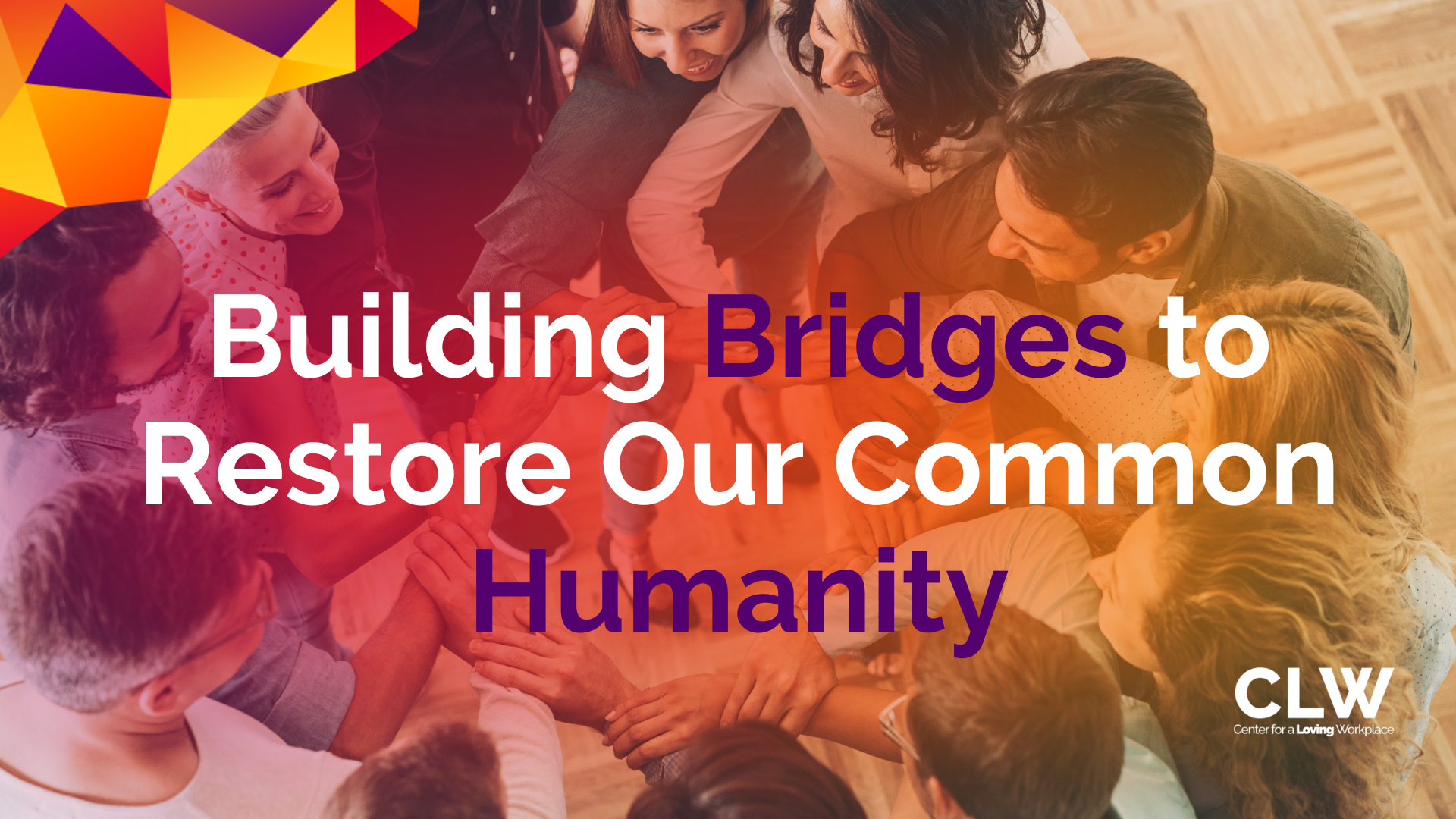Building Bridges to Restore our Common Humanity
By Rick Gage, Executive Director.
I’ve been wrestling with the way my mind and heart are impacted by the fractured world I see in the middle east, in U.S. politics and in atrocities we see around the world. It can seem quite hopeless. I find waves of sadness and anger arising and moving through me.
My heart longs to respond, to do something that takes a stand for non-violence, for more love and less fear. And I keep coming back to what I’m coming to believe is a foundation of non-violence – my ability to see each person’s humanity. To recognize even in those I profoundly disagree with, maybe even those whose actions threaten me, at least some sense of our common humanity.
Ghandi is quoted as saying, “Our ability to reach unity in diversity will be the beauty and test of our civilization.”
I’m getting the test part. Not so often the beauty part right now.
Somehow, we need to rediscover shared interests in our communities and our shared planet. We need somehow to see each other more as neighbors collaborating to make the world a better place rather than my group vs your group, fighting each other in a context of perceived scarcity.
In a time of so much de-humanizing can we find ways to re-humanize our mindsets and our actions?
When we can find even small ways in which we see our shared hope and dreams, we break down the barriers between us. When we can find ways to build bridges that allow us to see each other as fellow humans rather than enemies the small green shoots of hope can begin to grow again.
We may find opportunities to genuinely connect with those with whom we feel alienated, but many of us don’t have those people in our regular circles, so the work of healing may be primarily inner work.
I’ve been returning to a “just like me” practice that you’re likely also familiar with. If you haven’t been introduced to it before or want a refresher here is a link to a Common Humanity Meditation in this tradition.
Sometimes when I’m most activated it can be hard to embrace the “just like me” phrase because my mind argues that they are NOT just like me. It sometimes helps if I drop the word “just” which seems to open up that our experiences have some similarities even if they are not exactly the same. And the full practice that has been so helpful to me always includes a turn around that “just like everyone, I also . . . “
I’m choosing to cultivate as deep a sense as I can of our common humanity as we navigate these challenging times.
Rick Gage, Executive Director
Center for a Loving Workplace

